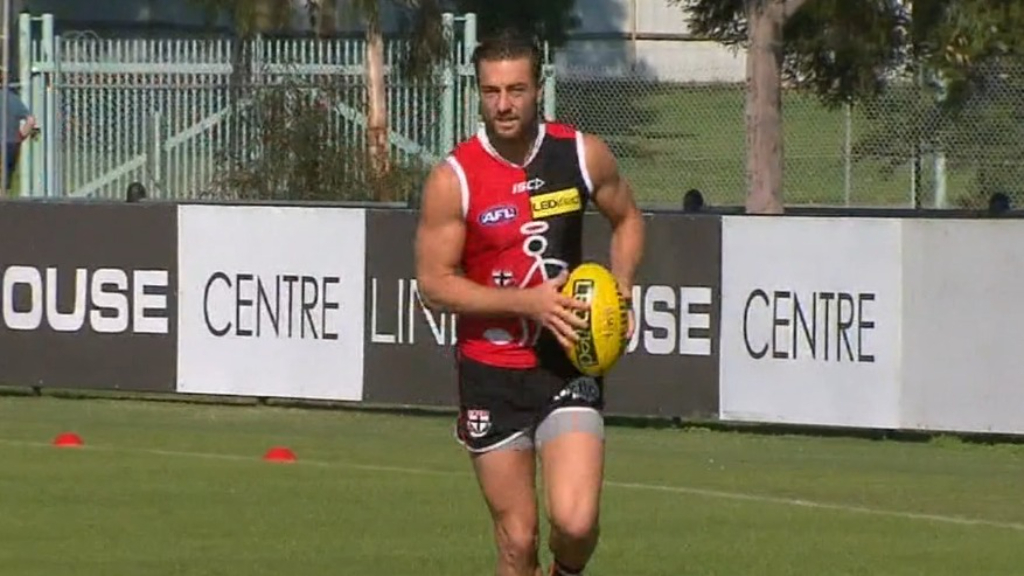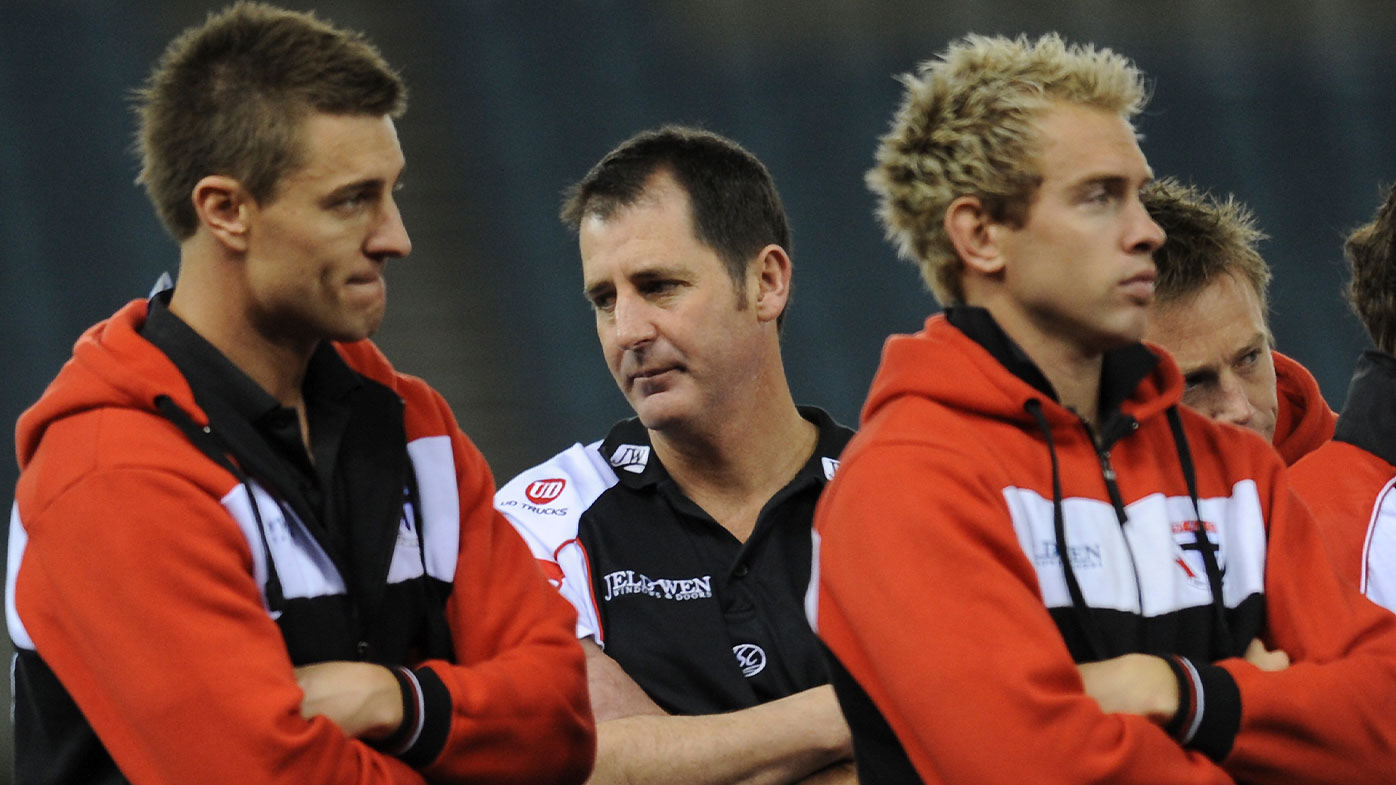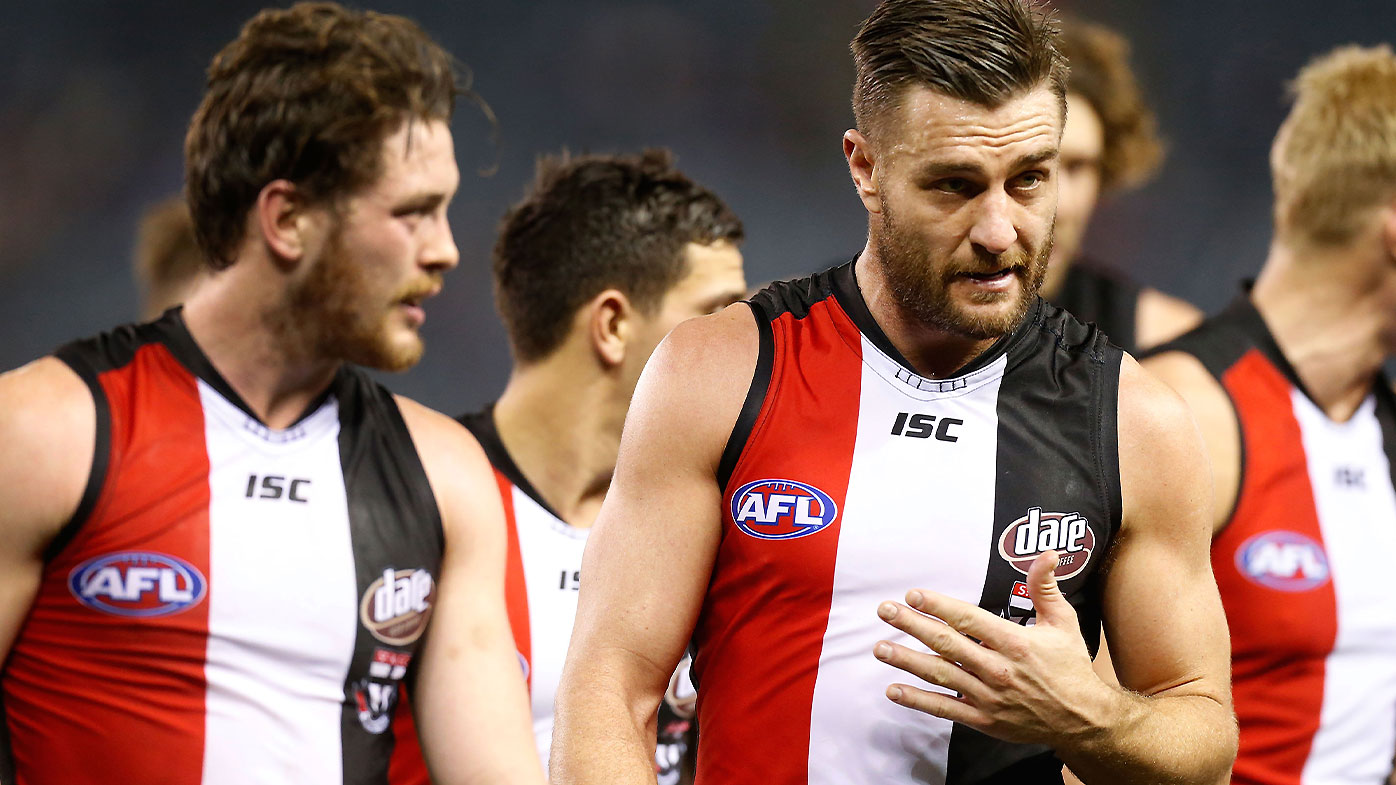Sam Fisher’s old coach Ross Lyon says he wasn’t aware of any drug problems the player had during his time at St Kilda, calling the troubled ex-Saint “a lovely person”.
Fisher, who played 228 games before his retirement in 2016, played his best football under Lyon between 2007 and 2011, and was named in the 2008 All-Australian team.
After the 39-year-old was arrested and charged with trafficking a large commercial quantity of illicit drugs, Lyon touched on his experience coaching Fisher, saying he hoped the ex-Saint would become a cautionary tale to current AFL players.
READ MORE: Sobbing Tsonga ends career in teary ‘madness’
READ MORE: NRL’s secret plan to overhaul besieged Bunker
READ MORE: Lockyer gives re-signed Broncos gun a reality check
“It’s very difficult. He was a very special player for me,” he told Nine’s Footy Classified.
“He always trained and he always played and he caused no headaches for me. Beneath the surface, there was clearly a bit going on, but as a coach you don’t get any of that, it’s the club doctor only. I was never informed.
“To me, what did I see? An incredible athlete, a lovely person, kind nature who trained and played and was a star of the club. I never saw a troubled person. Did I know he partied hard at times? Yeah.
“Let’s hope the 600 players in the system sit up tonight and go, ‘What am I doing with my life?’.
“Wake up. The money’s not enough. Statistically, 90 per cent will be married and you’re going to have kids. You’re going to have to work for the next 30 years of your life. Get moving.”
Lyon said he’d been “concerned about (Fisher’s) lifestyle and how he was living very recently”, despite not having contact with his former player for at least six years.
The 55-year-old said the AFL needed a “lever” to pull to ensure that players retired with employment or having completed some tertiary education.
“My own experience, when you get to the end of your career, if you haven’t worked, you start to stress,” he said.
“In Fremantle I had an experience. A young player – who is still in the system now – came from a strong family, his father was a principal of a school and he wasn’t struggling. Our player educational vocationalist was trying to get him into a course and he wouldn’t enrol. I said, ‘Mate, I’m ringing your parents and if you’re not enrolled by the end of the week, I’m dropping you from the senior team’. And then we met with his father in Melbourne and he enrolled in the course and got moving.
“There’s no levers in the AFL to pull to force them to study or work. In the college system, which we compare ourselves to all the time, there’s scholarships and if they don’t study, they don’t play. That’s the lever they pull. We have no lever.”
Lyon’s comments came after Fisher’s former teammate, St Kilda icon Nick Riewoldt, admitted that the defender’s close friends had been aware of his off-field struggles.
Former Collingwood president Eddie McGuire suggested that the AFL needed to tighten its illicit drugs policy, with the current three-strike policy providing too many loopholes.
“There is one way not to get a drug problem: don’t do drugs,” he told Footy Classified.

“As a president of a football club, I would never be told what happened, but if it got out, the club cops it.
“I think what we need to do is become a little bit more adult about this. I think it’s time for us to say, ‘Okay, drugs are prevalent in society, we need to stop getting kids on’.
“What’s happened is, the AFL drug code, as well-meaning as it’s been, has actually been a passport for players to get onto drugs. If you’re at a nightclub, sometimes a player will want to say, ‘I can’t do it because I’m going to be tested tomorrow’.
Footy Classified is now available as a podcast! Subscribe/follow via Apple, Spotify or Google Podcasts
“We’ve got to get to the stage where we have to stop players getting on the drugs. At the moment, it is still about aiding people to get through (without a positive test). I love the health part of it, but I think we’ve got to go a little bit harder.
“The players need to sit down and decide what the pathway is. Do they want stops there to help them get around these situations or do they want to have a life that goes on afterwards?”


